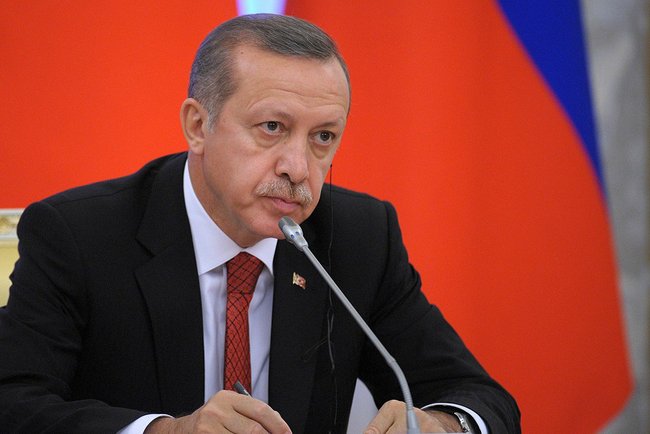Breaking News
The creeping dictatorship in Turkey

Image: Wikimedia
Recently news erupted from Turkey that the military was attempting to overthrow the government. Tanks rolled through the streets of Ankara and President Erdogan was forced to deliver a public plea for resistance over facetime from a secure location.
Luckily for him, the attempted coup was overthrown in a matter of hours, and in the aftermath, a wave of arrests quickly rooted out anyone who might be even tangentially related to the plot.
If you were unfamiliar with the political situation in Turkey, the failure of the coup might seem like a victory for elected democracy over the potential for a military dictatorship, and in a sense that is indeed what it was. But in another sense, the event also marked the failure of a last-ditch attempt to halt the creeping dictatorship of Recip Tayyip Erdogan.
Erdogan came to power in 2002, when he became Prime Minster of Turkey, a position he held for eleven years. In 2014, he transitioned to the Presidency, which was meant to be a largely ceremonial role, but under Erdogan’s influence, the office has increasingly absorbed much of the powers originally held by the Presidency.
Since then, Erdogan has enjoyed a solid base of support among the more conservative and religious voters of the country and many have voiced the opinion that Erdogan’s AKP party secretly plans to overturn the secular constitution of Turkey in order to replace it with a more religious one.
It’s not an issue that Erdogan is currently interested in pursuing, instead focusing the constitutional debate on moving towards one that grants the office of the President more power.
And more power appears to have been the aim of Erdogan for a number of years, which has required a steady targeting of political opponents. Ranging from party members sacked for not towing line to journalists with the nerve to speak up against his regime, dozens have been targeted by Erdogan.
In the wake of the recent coup, arrest warrants were issued for a number of journalists, in what one of those targeted called the “nullifying of whatever remains of dignified journalism in Turkey.”
It wasn’t the first, or most intense crackdown on freedom of the press in the country, but rather the continuation of a concentrated effort on the part of the state to silence opposition to the regime.
Today’s Zaman, an English-language paper that had previously led an investigation into government corruption was seized by state police in a dramatic raid while protestors outside were tear gassed and brutalized. The courts then appointed a government body to oversee its editorial board.
Media organizations around the world immediately decried the move as a naked attempt to silence criticism.Whether or not that was the case, Erdogan must have been happy with the results, since the first edition released after the takeover was decidedly pro-regime.
The aftermath of the recent coup provided a golden opportunity for Erdogan to purge the country of opponents. And the wave of arrests that followed made it clear that Erdogan wasn’t just targeting possible plotters. Thousands of judges and journalists were arrested in the subsequent crackdown, most of whom seem like unlikely plotters for a coup organized by the military.
And of course, Erdogan’s government called for the extradition of Fetullah Gülen, a former political ally who fled the country for the U.S. after the Erdogan accused him of masterminding the release of documents revealing government corruption.
Since then, the government of Turkey has done what it often does to enemies and labeled Gülen a terrorist, though the U.S. has refused to extradite him until the Turkish government can provide some proof that he has committed any crime other than opposing the regime. Yet the Turkish government has used the moderate cleric in his 80’s as an omnipresent boogeyman who is blamed for nearly every negative political event in the country.
The steady erosion of the rule of law in the country and the demonization of moderate political enemies has paved the way for the seizure of total power by Erdogan’s government, and the defeat of the coup has left him in the perfect position to finish this transition to dictatorship.





0 comments